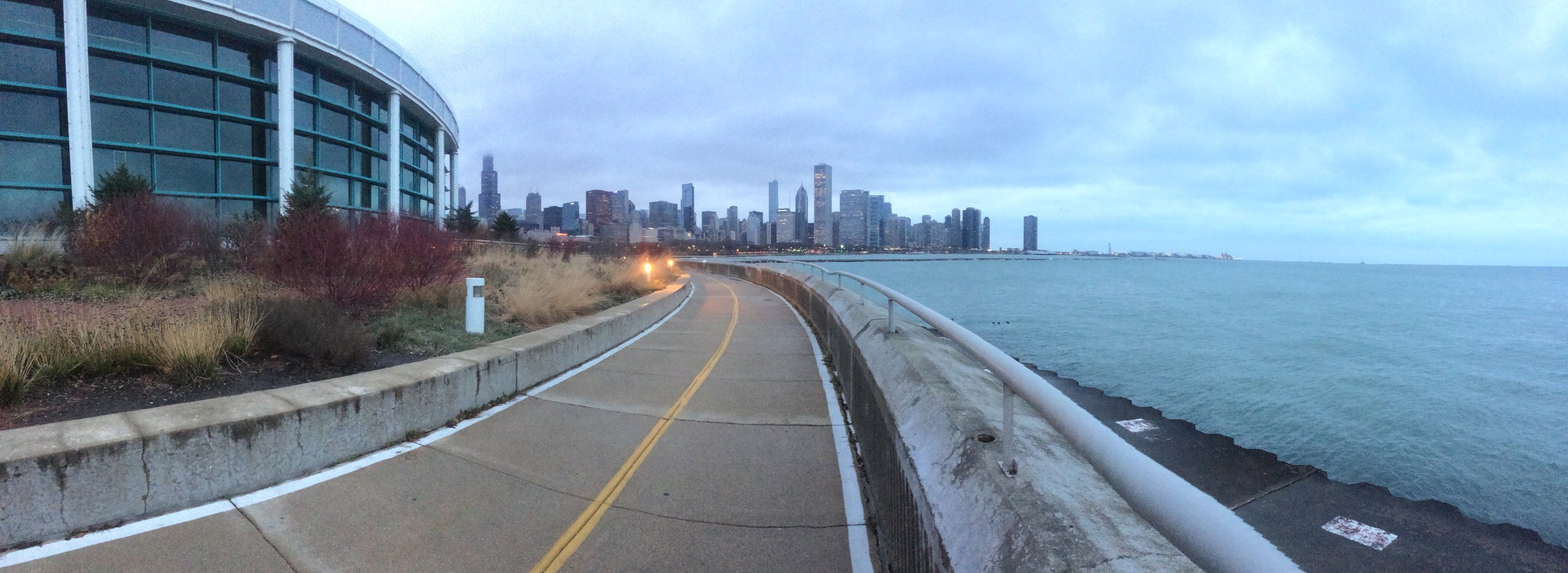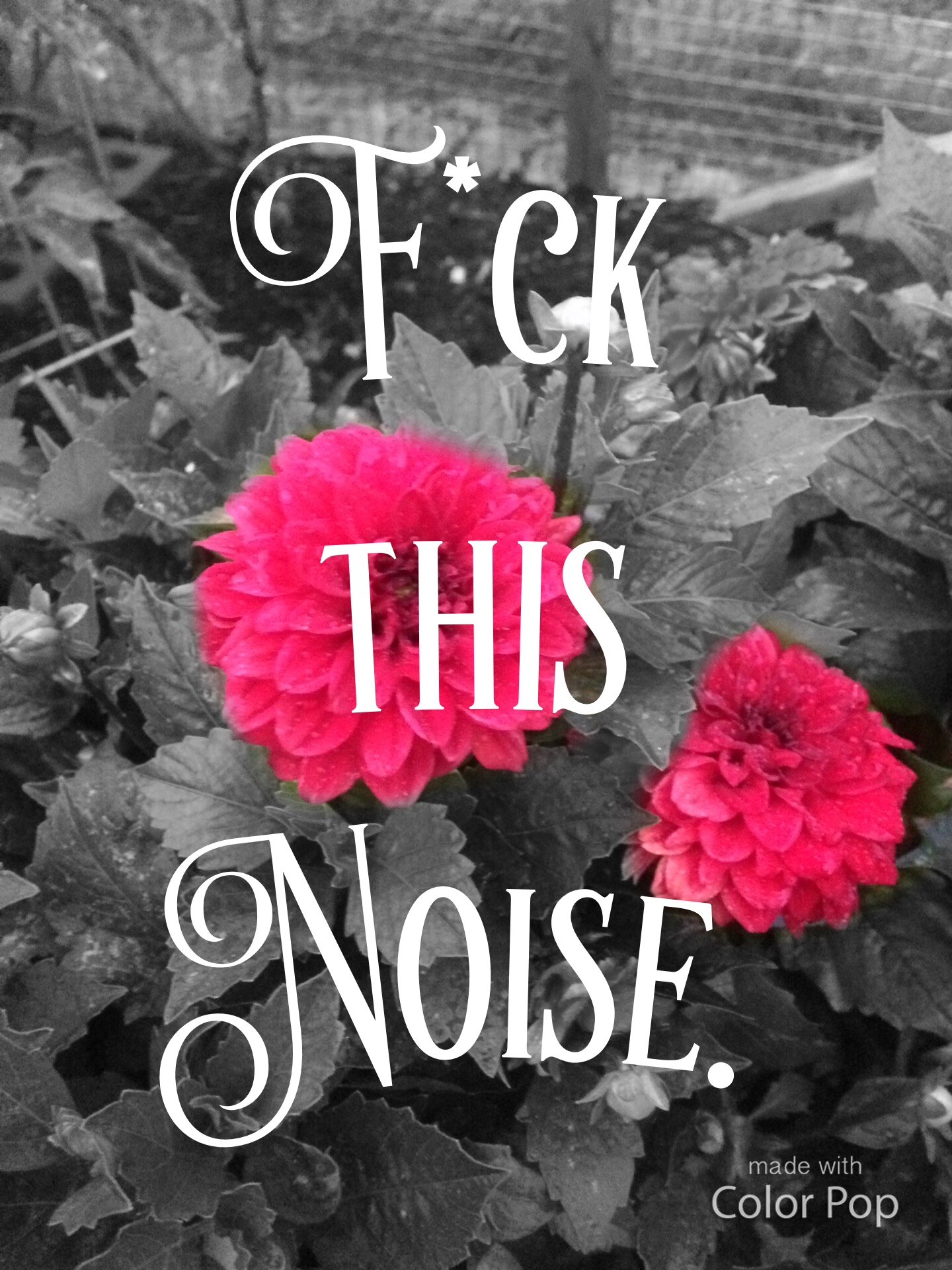Instead, I wanna talk about how we as yogis respond.
Part of my training as a yoga teacher was more or less this: leave your politics at the door. Your work as a teacher is not about what you think or what you want. It begins and ends with your ability to facilitate safety, growth and healing for every student who walks into your shared learning space.
It seems pretty sound advice. But I'm not sure it's possible.
My politics can't stay at the door. My politics come with me, in my skin, my eyes, my lips, my hair, my voice. I'd argue the same is true of every teacher in this country, whether we acknowledge it or not, whether we even know it or not. The fact of my body in the room, especially at the "front of the room" has political weight. This is a reality I have no control over. Being a black woman in the seat of the teacher has meaning. That meaning might change depending on who else is in the room with me, but it's not gonna go away, no matter what I wear, what voice I affect, what practice I teach. I'm not afraid of it, and I'm not going to pretend it isn't there. And now, if it's possible, being a black woman in the seat of the teacher has even more meaning, than it did last week. To leave politics at the door is an act of privilege, it's a privilege I don't share, and frankly, I don't think any of us can afford it.
Like many of us, I was all up in my screens during the aftermath of the election--what a strange phrase, "aftermath" like a natural disaster--and in my FB and Instagram feeds were posts from teachers I respect, some I know closely, some I've never met: photos of sunrises and fields of flowers and abstract watercolors: posts about how we're all gonna be okay, how the sun keeps coming up every day and there's a lesson in that for all of us, how the practice is about cultivating equanimity, work without detachment, even when times are tough.
All I could think was, don't fucking tell me it's gonna be okay, don't fucking talk to me about equanimity, don't fucking talk to me about detachment. I don't want to hear about peace and self-care. I fear for my life. I fear for the lives of my clients, and some of my students. Less Shiva on the mountain top, more Kali liberating motherfuckers by chopping off heads.
(I know, scholars, I know. I get that Kali liberates us from our ego, and her destructive force is what helps us not to identify with our bodies. I live in America, where to disengage from my body is to put it at risk of annihilation by a force that doesn't seek my liberation, that only seeks the annihilation of black bodies in America. So just, work with the metaphor.)
It's true, I'm in my feelings in a big way. No, that's not the right language: I feel terrorized by the nation I call home. This feeling is not new. It might lessen in the passing of time, but it will never leave: I'm a black woman in America. If you can't understand why the undercurrent of terror in my existence is real, you have more reading to do.
I struggle with posts like these, wherein yoga/pranayama/samyama are identified as the tools of healing-as-detachment, because they feel somehow rooted in abandonment. They seem to say, yes, shit is bad, but don't feel that bad here, in the yoga space. Here, you should return to your practice of detachment and ignore all other input. That will be a healing practice for you. I do not believe denial is healing. It's dangerous.
Yoga is not a vacation. It can be restful, but it is not rest. Whatever your effort level, yoga is a constant practice of attention, reflection, and interrogation, and that takes effort. To sell yoga as a place where suddenly politics don't matter, where suddenly part of what you feel and struggle with isn't real anymore, is just dishonest.
If the manifestation of equanimity in your practice means you distance rather than engage with the world around you--if you don't look for ways to actively support the people of color in your life, the Trans* folk, the immigrants, the Muslims, the workers, the women--if it means, white yogis and yoginis, that you are not having difficult conversations with other white yogis and white friends and family about how you reach for those of us on the margins, how you show up for we who are even less safe now, then regardless of what you can do with your breath or your body, your practice is failing you.
Let me say that again, simpler:
if your practice and its fruits do not motivate you to seek the rights of others in our world to be free, to breathe, to live and work with as much access, freedom, and safety as you have, then your practice is failing you. It is failing you, and failing your community.
Fuck yes, it is a bold statement.
There's a beckoning tangent here about the history of the yogini as a person on the margin and how we gotta put ourselves where our yoga ancestors began, but instead of following it, I ask, why do we try to soothe so quickly and so certainly after collective trauma? Why do we need to keep telling ourselves and others to calm down, to take care, to take the good and the bad with equal detachment? Why are we in such a hurry to move people out of their feelings?
I think some of us are afraid of the conflict inherent in politics. Conflict is not serene, it's not equanimous; it's unpredictable, dangerous, potentially damaging, like a power tool in the hands of a toddler. How do we achieve oneness with the Absolute if we've got our knickers in a twist and our blood pressure all hiked up about something? How can I listen for the whisper of the Divine if I'm shouting all the time? Knowing that I'm in conflict with a member of my community makes it harder for me to practice beside them, right?
I understand. Most of us don't do conflict well enough not to be scared of it. But conflict can be real, powerful, AND deeply compassionate. We can fight for what is right, what is just and even merciful, without hardening our hearts to do so, and without hating or harming our neighbors. We have so many examples of how to do this. Jesus got mad. Jesus flipped tables and marched in streets. He also sat quietly, and he knew how to sacrifice for others. I learned recently that when Martin Luther King was here in Chicago marching with others for fair housing rights, a young white man on the street was spitting and cursing and throwing bottles at him and others. He walked up to this young man and said, "You are too smart and too good looking to be so full of hate." We hold them up as saints now, but they were just humans, like us. It's possible.
I also think it has to be said in our capitalist yoga society, that to publicly acknowledge, avow and affirm opinions that aren't popular with all people can cost you clients. Because politics breed conflict, and because people don't like conflict, if you bring to them rhetoric that challenges them, they won't stay. Or they won't come back. While we as yoga teachers say we want to help others manifest growth, healing and connection, we also want to feed our families and keep our kids in shoes. Right now we are stuck in (complicit in?) a system that grinds us into yoga-sparkle dust trying to do both of these things. And so we have to try not to sacrifice our morals and values in pursuit of earning a living and hope that throwing conscious crumbs before our students is enough, or we choose to sacrifice our values and live with the consequences of that dissonance. (Hint: chronic illness, consistent conflict in relationship, scorn, resentment, contempt and self-hatred are all symptoms of life with that dissonance.) Angela Jamison has written about this brilliantly, beautifully, here, and Mathew Remski's essay in this book makes me want to snatch up a few of my like-minded teachers and do some real radical shit. I can only say that for all the deep, deep, lifelong-lasting love I have for this work, it is unsustainable in its current economic model.




